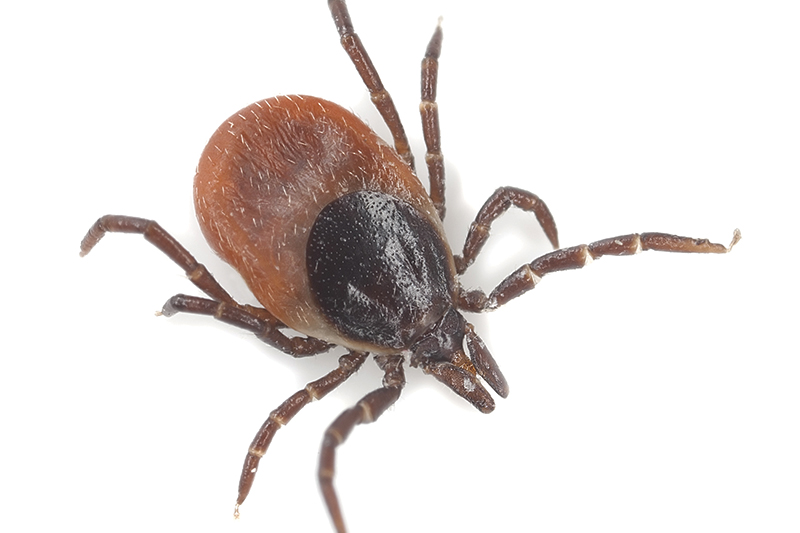Preventing Lyme disease starts with preventing tick bites!… Well, not really. Preventing tick bites in New England is nearly impossible unless you avoid the outdoors altogether, which is not realistic nor recommended. With the prevalence of ticks at its peak and the rates of infected ticks increasing yearly, exposure to Lyme is very likely if you are a New England resident. While it is important to prevent tick bites, the reality of living in New England is that you will encounter a few ticks every year.
The more important questions are how to prevent a Lyme infection and reactivation of a past infection. Lyme is an opportunistic pathogen with the ability to live in protective encasements called biofilms for years and can reactivate when the environment is hospitable, like a weakened immune system. Therefore, we must focus on immune function as our best prevention, not a chemical or physical barrier.
Prevent Lyme Infections
How do you prevent a Lyme infection after a tick bite and avoid reactivation of a previous Lyme infection? With a properly functioning Immune system. Statistically, most ticks are infected with Lyme, yet thousands of people are bitten by ticks every year, and there are no traces of infections or symptoms, even without treatment. The only plausible reason for this is an immune system that can tolerate Lyme exposure.
To be clear, I recommend seeing a Lyme literature provider if you are bitten by a tick to ensure proper prevention and treatment of infection. However, if the immune system is able to do its job, no other treatment should be needed.
What are the next steps to ensure an optimal immune system? Get enough quality sleep. Eat a diet with plenty of antioxidants, protein, and essential nutrients to support a proper immune response. Stay hydrated and stay active. In addition, consider basic immune support, which can consist of herbals like astragalus and mushroom extracts as well as sufficient vitamin D and vitamin A. Consulting a naturopathic doctor or functional provider can help you with this.
Here is the critical part: Avoid immune disruptors! This is a generic term for chemical toxins that reduce immune function, and they are found everywhere. They are not specific to Lyme or even infection but can trigger other serious conditions such as an autoimmune disease. Avoid processed foods and household toxins like synthetic cleaning products, cosmetics, and aerosols, which can be major immune disruptors. However, the most potent immune disruptor I have uncovered is environmental mold toxicity. It is strongly correlated with the reactivation of Lyme infections and is more common than you might think: The EPA estimates that 50–70% of buildings have significant mold growth.
Clinical Example
From January 2021–2022, a dozen patients walked into my clinic with a new onset of Lyme symptoms, and all tested positive for Lyme. None presented with rashes or known tick bites. They had limited outdoor activity due to the freezing temperatures and no pets that could carry the ticks into the house, making a tick bite and new Lyme infection unlikely. So, I decided to investigate other potential causes for their symptoms and positive test results. To me, understanding why the problem started is just as important as diagnosing and treating the problem.
As it turned out, eleven of the twelve Lyme cases were reactivated infections due to ongoing mold toxicity in the patient’s homes that had become more significant when the houses were sealed, air was recirculated, and the patients were spending more hours indoors than usual.
With proper remediation of the mold and treatment to detox the mold, the immune function in all 11 patients fully recovered, resulting in a relatively simple and short treatment of Lyme infections.
It turns out that the prevention of the germ (Lyme) is not as important or plausible as our ensuring a resilient terrain—the immune system.
Dr. Zach Moran of Roots Natural Medical Center is a board-certified and licensed naturopathic physician and has completed a medical residency program. He has an extensive research background and specializes in chronic infectious disease and environmental toxicity, which he believes to be at the core of most chronic diseases. Roots is a Naturopathic Medicinal Center that focuses on addressing foundational root causes of complex chronic diseases. The clinic aims to properly identify, diagnose, and treat patients with unexplained chronic illnesses. Our services are individualized and patient-focused, as medicine should be.
Visit: rootsmedicalcenter.com, email: info@rootsmedicalcenter.com, or call 860.471.1434 to learn more.
